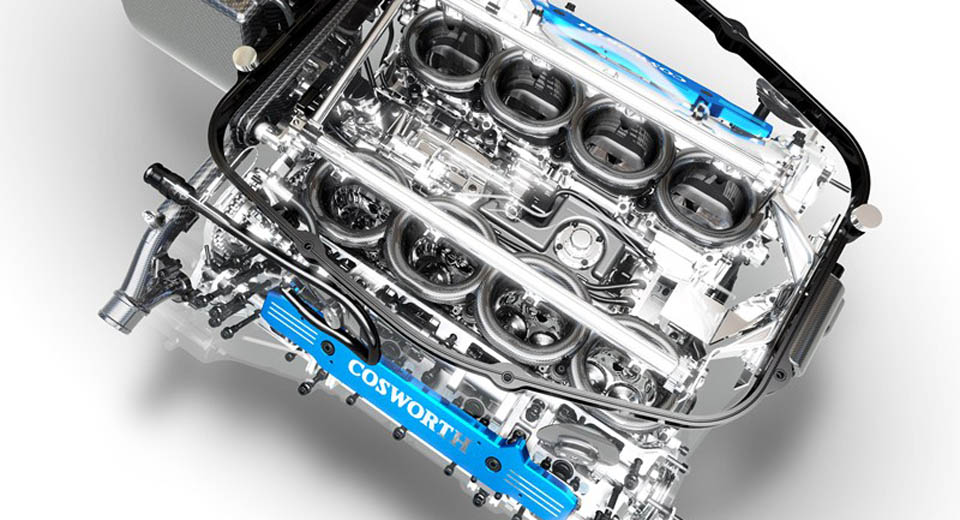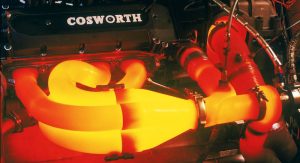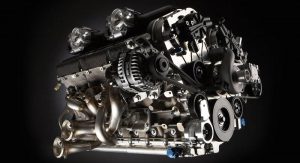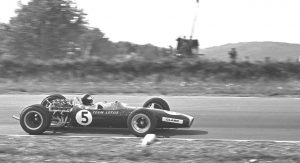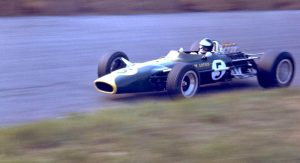Drivers and teams may get the lion’s share of attention in Formula One – and most of the credit – but it’s arguably the engines that make the biggest difference in performance. And F1 is poised to gain another engine supplier.
Not just any engine supplier, either: we’re talking about Cosworth, one of the biggest names in the business and foremost independent engine constructors ever to compete in grand prix racing.
Not familiar? You should be: Cosworth engines have propelled cars and their drivers to no fewer than 176 grand prix victories, making it more successful than any other supplier save for Ferrari.
In fact if you added up all the suppliers that previously competed, but like Cosworth no longer do (i.e. minus Ferrari, Renault, Mercedes, and Honda), their combined total wouldn’t add up to all the races Cosworth engines have.
Its famous Double Four Valve (DFV) was the engine to run in the late 1960s, throughout the ’70s, and well into the 80s. Lotus, Williams, McLaren, Benetton, Brabham, Tyrrell, and Matra all won championships under Cosworth power. The British outfit made all of Ford’s F1 engines, and remained a fixture on the grid from 1963 through 2006, returning after a brief lapse in 2010 to supply Williams and a dwindling number of upstart teams – the last of which was Marussia in 2013.
The enormous cost and complexity of the current 1.6-liter turbocharged hybrid V6 engines proved too much for a small independent firm like Cosworth to handle (at least without a major corporate backer). But with a new, cheaper format set to take hold in 2021, Cosworth is reportedly gearing up to get back in the game.
After participating in a recent F1 engine strategy session, Cosworth CEO Hal Reisiger confirmed to Autosport that work is now underway on its new powertrain project. “I think that we’ve got sufficient support from the existing teams, and we’ve had discussions with some, that enable us to make the commitment to proceed,” Reisiger told Autosport. “More teams committed for a longer term is always better. But we have some verbal agreements to partner with some existing and future teams that would enable us to be a sustainable engine partner.”
The existing teams Reisiger mentions could be any of the independent squads on the grid – including Red Bull, Toro Rosso, Williams, Sauber, McLaren, Force India, and Haas (although the latter’s switch from Ferrari support seems unlikely). More interesting, however, is the reference to “future teams,” as there have been reports of new teams looking to join the grid in the coming years.
Equally intriguing is the question of whether Cosworth’s new engines will end up badged under its own name (as they were most recently), or under a corporate sponsor’s (as they were under Ford patronage for decades).
One possibility mooted could see Aston Martin, which was also represented at the aforementioned recent strategy session, support the program and brand the engines under its own name. Cosworth is supplying Aston with the 6.5-liter V12 for the Valkyrie being developed with Red Bull, which in turn runs Aston branding on its cars already – and TAG Heuer-branded Renault engines. Seeing Red Bull, Aston Martin, and Cosworth join forces on the F1 circuit wouldn’t seem like much of a stretch, then, but we’re still several years away from that all coming together.



